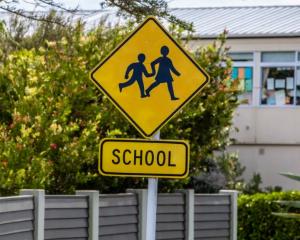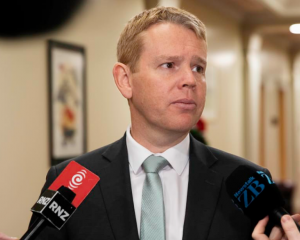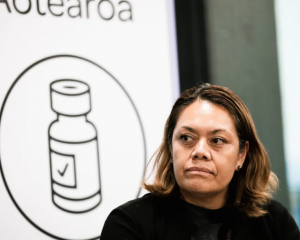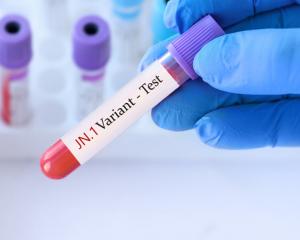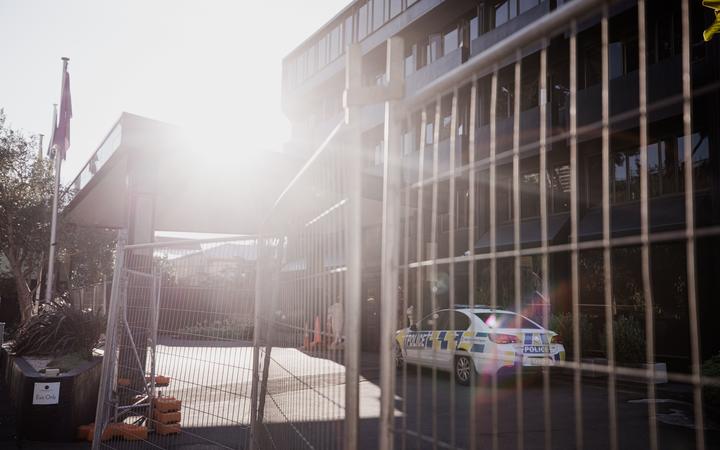
The Government is allowing Covid isolation facilities to be overbooked so full that capacity is reached even if there are last-minute cancellations or no-shows.
It has been using 32 hotels to house people for their 14-day stay in managed isolation after entering New Zealand.

Just three days later, it was announced all spots were fully booked up until Boxing Day, December 26.
It led Air Commodore Darryn Webb, who heads Managed Isolation and Quarantine, to add 100 extra rooms between December 13-23 to accommodate more people.
Minister for Covid-19 Response Chris Hipkins said today the supply of rooms was enormously constrained by the number of hotels they were running.
To ensure there were no empty rooms from cancellations they were overbooking the hotels, he said.
"We're allowing for a little bit of overbooking on the basis that we do know we get a proportion of no-shows.
"So we can dip into the contingency that we have, and take a bit more risk on overbooking the system, on the basis that we know we'll be able to accommodate that."
'Price we have to pay to stop Covid-19'
Meanwhile, the Government will be considering long-term funding for managed isolation in the next week.
The running of the hotels is costing the country $2.4 million a day and is due to go over budget before December 31.
"We're going to be doing this for a while, so Cabinet will be considering the funding for that," Hipkins told RNZ.
"It is an expensive system. We do what we can to keep the costs down, but there's no question the security involved, the health care and health checking involved, is expensive.
"This is the price we have to pay to stop Covid-19 coming into the country."
He added they were considering using debt collectors to make sure people paid their bill for staying in a managed isolation facility.
About a third of people who have been invoiced for their stays have still not paid, more than three months later.
Warning issued for new masks
Hipkins also raised concerns about the move to N95 masks by isolation and quarantine workers.
New guidance was issued at the end of November about the masks, telling workers they should be wearing the more tight-fitting masks when in close confines with potential Covid-19 cases.
They had been wearing less-protective surgical masks as protection.
If improperly fitted however, the N95 masks could prove less effective than the surgical masks.
"N95 masks need to be specifically fitted, you need to get the right fit for your N95 mask, or potentially you're increasing the risk," Hipkins said.
"There's a range of issues being worked out at the moment, making sure people are wearing the right masks, so they can use them to stay safe."
Training for fitting and wearing the specialist masks is expected to be rolled out to workers this month.
Bluetooth announcement before Christmas
The minister also promised that the Government would make an announcement before Christmas about the use of bluetooth as part of the country's track and trace system.
Authorities have been working since March to get the technology operational, but so far to no success.
Progress has been beset by delays, and feuds. The initial trial for the "Covid Card" in Rotorua finally happened in November, a month behind schedule.
It was complicated by Sam Morgan - the founder of Trade Me, who was an initial partner to the government on the technology - pulling out of the trial at the beginning of September.
The technology was welcomed as being convenient and easy to use.
The Government also signalled similar bluetooth functionality could be used by the official Covid Tracer smartphone app.
An announcement on how the technology would be rolled out, and in what capacity, is forthcoming.
Hipkins said part of what was being considered were concerns around privacy.
"One of our underlying principles in New Zealand has continued to be the protection people's privacy.
"We've continued to work on the basis that if we were to roll out bluetooth, people would own their data. So we wouldn't be compulsorily turning on bluetooth and collecting that data, people would have the choice there."


